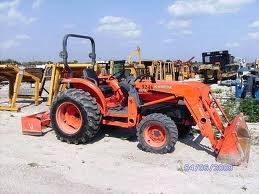
Should I Buy or Rent Heavy-Equipment? (Free Ownership Cost Calculator)
February 6, 2025
When you need equipment for your projects, deciding whether to rent or buy is a critical choice that impacts your budget and efficiency.
Each option comes with benefits, but the right decision depends on factors like usage frequency, cost management, and financial goals.
A-Z Rentals, a trusted name in equipment rentals since 1969 , offers a wide range of rental tools and used equipment for purchase.
To help you make the best decision, this article breaks down the key considerations and provides a helpful cost calculator to compare rental and ownership expenses.
How Often Will You Use the Equipment?
If you plan to use equipment more than once per week or at least once a month, owning it is often more cost-effective. Frequent use spreads out the ownership costs over time, making it a smarter investment.
For example, contractors working on multiple projects might benefit from owning high-usage tools like skid steers.
Conversely, if you need a tool less than once per month, renting is the better choice to save on upfront costs, storage, and maintenance.
General Rule: Rent if you use equipment less than once a month, consider buying if you find yourself renting more than that.
Cost of Ownership vs. Renting
Ownership comes with added costs beyond the purchase price, including maintenance, repairs, insurance, and storage.
Renting eliminates these expenses, but its convenience comes at a premium.
Equipment Ownership Costs To Consider
-
Purchase price
-
Financing & interest
-
Delivery fees
-
Regular maintenance
-
Insurance costs
-
Depreciation (value loss over time)
Equipment Rental Costs
-
Rental fees (daily, monthly, or yearly)
-
Pickup and delivery charges
-
General Rule: Get estimates for ownership costs from trusted sources and divide these costs by your usage frequency. This is a great way to get a ballpark for your specific ownership costs.
Fleet Management and Availability
Owning equipment means you’re responsible for managing your fleet, including tracking usage, scheduling maintenance, and handling storage.
This can be time-consuming and costly for businesses. Renting shifts this responsibility to the rental company, giving you more time to focus on your projects.
Renting also offers better usage control. You can rent equipment only when needed, avoiding idle machinery that incurs costs without delivering value.
However, when you own equipment, it’s always ready when you need it. Renting can sometimes mean waiting for availability, especially during busy seasons.
If downtime isn’t an option, owning may provide peace of mind.
General Rule: Consider how the impact of fleet management or underutilized equipment would strain your resources. This is a greatly underestimated factor when it comes to ownership.
The Resale Value of Equipment
One major benefit of buying is that you can resell the equipment when you no longer need it.
Well-maintained equipment retains value and can recover a significant portion of your initial investment.
A-Z Rentals offers high-quality used equipment for purchase , ensuring reliability and good resale potential.
General Rule: If you can expect strong resale value and frequent use, buying is a better financial choice.
Equipment Rental vs. Buying Cost Calculator
Use this cost calculator to estimate whether renting or buying is more cost-effective for your needs:
To Calculate Rental Costs:
Rental Cost Calculator
To Calculate Ownership Costs:
Ownership Cost Calculator
Example Calculation:
Let’s say a piece of equipment costs $30,000 to buy. Ownership costs include $3,000 in annual maintenance, insurance and other expenses. Additionally, you plan to sell it for $20,000 after five years. Renting the same equipment costs $1,500 per month, plus a $500 delivery fee.
-
Rental Costs: $1,500 × 12 months + $500 = $18,500/year
-
Ownership Costs: ($30,000 + $3,000 × 5 – $20,000) ÷ 5 = $8,000/year
In this scenario, ownership costs are lower, making buying the better choice if you use the equipment frequently.
Final Thoughts
The decision to rent or buy equipment depends on your unique needs.
Factors like usage frequency, cost of ownership, equipment availability, and fleet management all play a role in determining the most cost-effective option.
A-Z Rentals simplifies this decision with a wide range of rental options, high-quality used equipment for sale, and expert advice tailored to your projects.
Use the cost calculator above to make an informed choice and ensure the best value for your money.
FAQs
1. What is the 50% rule for renting equipment?
If your total rental costs exceed 50% of the equipment’s purchase price over a year, buying the equipment may be a better financial decision.
2. How do I calculate the cost of owning equipment?
Add the purchase price, delivery, maintenance, and insurance costs, then subtract the resale value. Divide this by the number of years you’ll own the equipment to determine annual ownership costs.
3. When is it better to rent equipment?
Renting is better if you use the equipment less than once per month, need access to the latest technology, or want to avoid maintenance and storage costs.
4. How does A-Z Rentals support equipment owners?
A-Z Rentals offers well-maintained used equipment for sale, allowing owners to invest in quality tools at affordable prices.